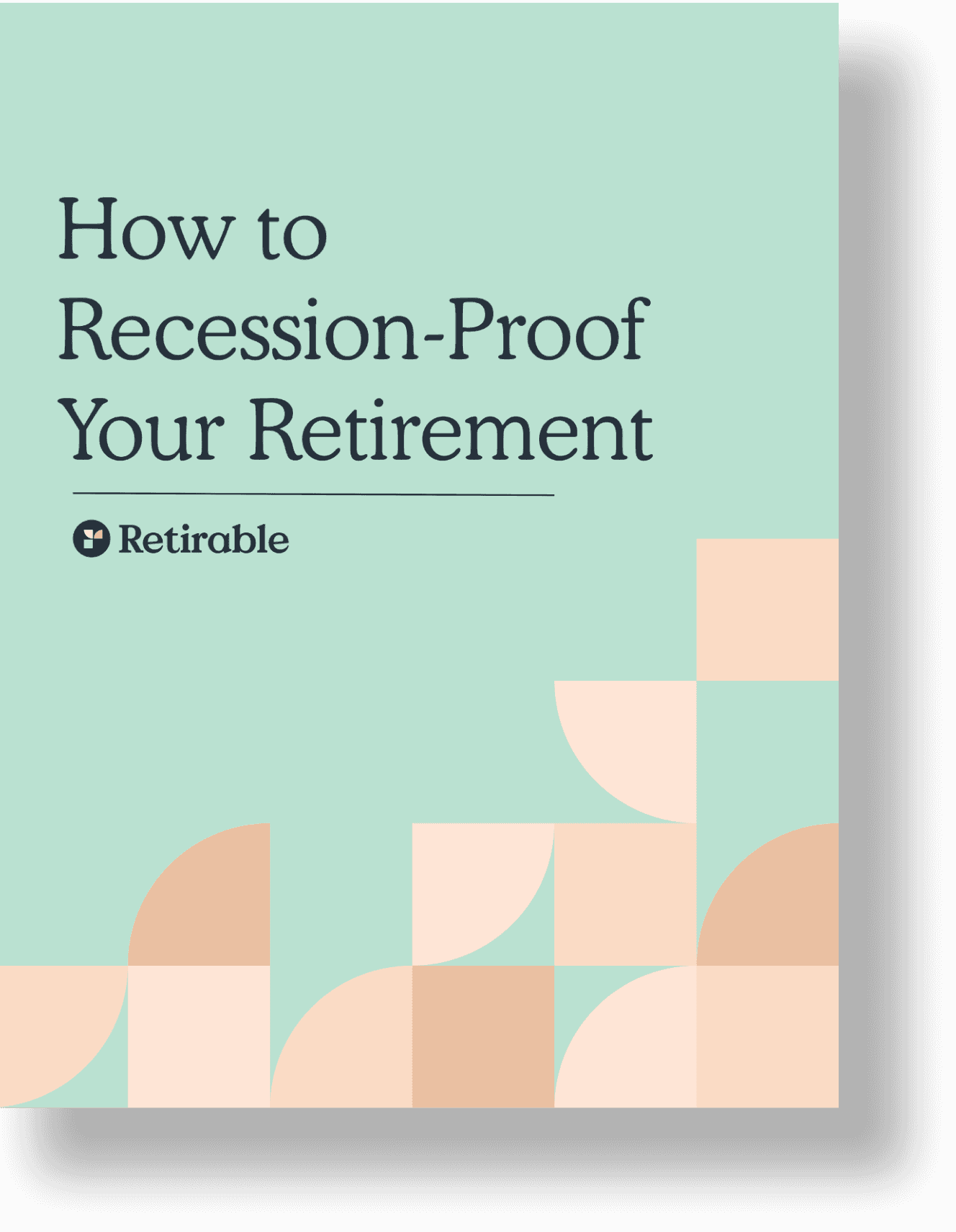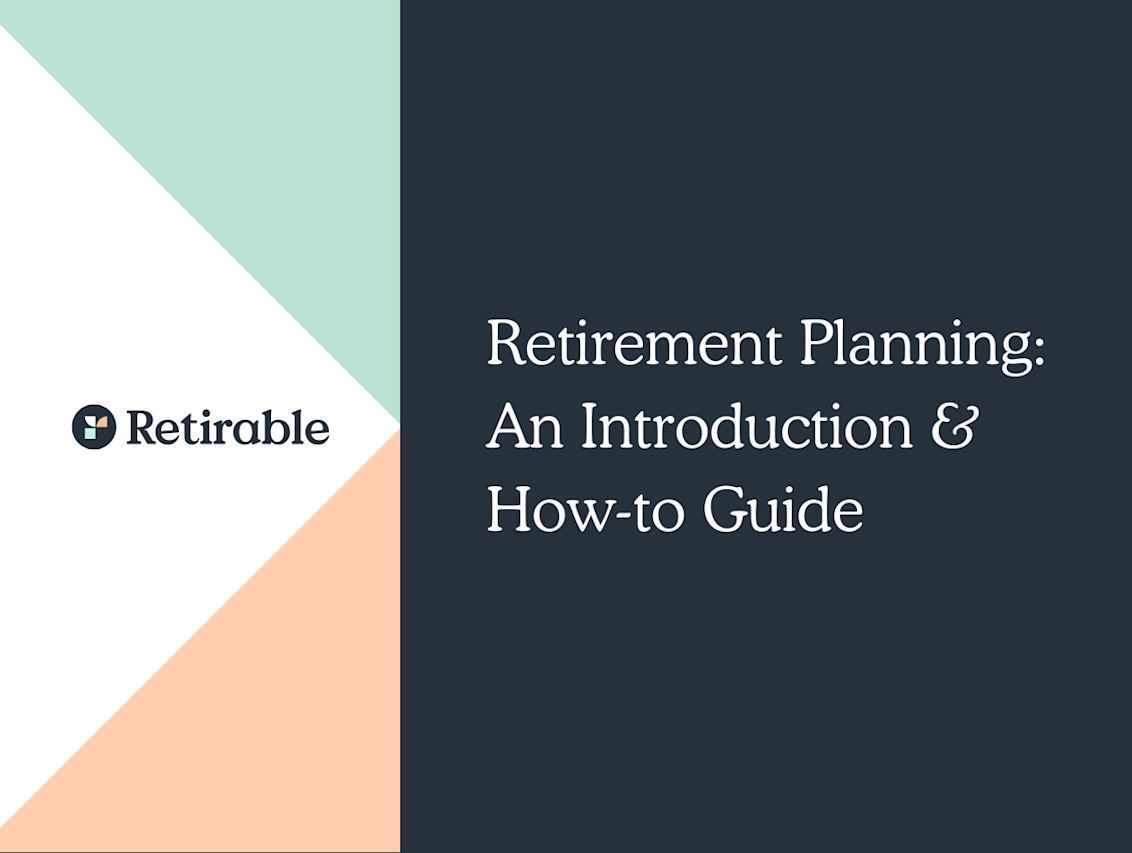Lifestyle
Whether you’re just starting to save for retirement or are preparing to retire in the near future, hiring a retirement advisor is a wise move to ensure that you’re saving an appropriate amount of money to secure your financial future. In this article, we will walk you through the essential steps and considerations to help you select a retirement advisor who aligns with your specific financial situation, needs, and retirement aspirations.

C.E Larusso
•
Published April 12th, 2024
Table of Contents
Key Takeaways
A retirement advisor is a professional that can help you strategize how to plan, invest, and spend your money so you are prepared for your retirement
It’s important to choose an advisor who specializes in the type of help you need at the time of life you’re in; many advisors cover multiple areas and specialties
Consider hiring a fiduciary. These advisors are bound by a strict code of ethics and aren’t allowed to receive bonuses or commissions on financial products they sell you
Your advisor should also hold professional certifications, such as Chartered Financial Analyst (CFA) or Certified Financial Planner (CFP®)
Whether you’re just starting to save for retirement or are preparing to retire in the near future, hiring a retirement advisor is a wise move to ensure that you’re saving an appropriate amount of money to secure your financial future. In this article, we will walk you through the essential steps and considerations to help you select a retirement advisor who aligns with your specific financial situation, needs, and retirement aspirations.
What Is a Retirement Advisor?
A retirement advisor is a financial planning professional who can help you strategize how to plan, spend, and invest your money so you are prepared for a comfortable, ideally stress-free retirement. A retirement advisor should be able to help answer some of your most pressing questions about retirement, such as:
- When can I retire?
- Have I saved enough money to retire the way I want?
- I have a family—should I be putting extra savings aside for them? How do I juggle saving for my kids’ education with my retirement?
- Are there ways I can lower my tax burden?
- When should I begin to take my Social Security benefits?
- What’s the right mix of stocks vs. bonds?
The term “retirement advisor” is, however, a broad one. A retirement advisor can cover a broad range of specialities and the term itself is loosely defined. They types of professionals might have one or more of these titles:
- Financial Advisor
- Financial Planner
- Certified Public Accountant (CPA),
- Investment manager
- Certified Financial Planner (CFP®).
You may have specific needs and questions about your retirement plan (e.g. taxes, estate planning, etc.) or wish for someone who can address your bigger financial picture. It’s best to have a good understanding of what you’re looking for in a retirement advisor as you set out to find—and, ultimately—choose the right advisor for you.
What Retirement Planning Advisors Do
A retirement planner’s core job will be to help you plan for your own retirement, which can include everything from developing a savings strategy to reviewing your taxes. Some planners will have an area of expertise, such as estate planning, while others take into account your entire estate, investments, and plans to make appropriate recommendations. Which you pick is up to you and where you’re at in your own planning; you may need more or less help.
Here are the main categories that your retirement planner might specialize in:
- Financial Planning: How you spend, save and invest money alongside a financial plan that aligns with your retirement goals.
- Investment Management: Where and how you invest your nest egg — including what you’re invested in and how to withdraw your money at the right time to fit your age and lifestyle.
- Tax Planning: As a retiree, you’ll want to minimize the amount you are taxed; ensuring you’re pulling the right money from the right tax-optimized accounts at the right time to maximize tax-efficiency.
- Estate Planning: It’s a sensitive subject, but your retirement advisor can also help you think about what happens to your assets after you die and ensure that your beneficiaries are taken care of—this might involve establishing a trust or writing a will.
- Long-term Care Planning: As you age, health care costs increase; planning for your health care expenses as you grow older is an essential part of retirement planning
Additionally, your retirement planner can help you think through financial decisions if a major life change occurs—such as a divorce, a job loss, or a big move to a new state with higher or lower income taxes.
Why Financial Advice Isn't Only for the Wealthy
You might think of retirement or financial advising as it is portrayed in the movies—with a high-roller CEO dialing up a trusted advisor to move money around, make investments, or help with a big financial decision. In reality, everyone who has income and financial responsibilities—either to themselves or others—can benefit from having a trusted financial advisor around.
Advisors charge for their services in a number of ways, so it’s likely that you can find one who will work with you and your budget. Some only charge a flat rate by the project, or an hourly rate for the duration of your work together. If you are someone who has a lot of money to manage, your advisor may charge you based on a percentage of assets under management (AUM), which averages 1% annually and can range from 0.85% to 2.50% annually.
Our industry-low fees are capped at $5k annually so you can enjoy retirement with more.
Schedule your FREE Retirable consultation today.Pros and Cons of Working With a Retirement Advisor
As with anything, there are pros and cons to working with a retirement advisor (though we think the pros outweigh the cons). Think through the benefits (and potential drawbacks) as you make your decision whether or not to hire one.
Advantages of Working with a Retirement Advisor
- Professional advice: There are lots of online resources to help guide you as your plan for retirement, but working one-on-one with a professional offering you personalized advice specific to you and your financial picture and plans is the best approach.
- Reassurance: Having an advisor at your side and knowing they have your financial picture covered can be reassuring and give you the peace of mind you’ve earned in retirement.
- Goal setting: An advisor will help you set attainable goals, which can make saving easier and more manageable. Less stress and busy work: A dedicated retirement advisor will handle many stressful tasks associated with saving and finances—empowering you to get back to enjoying life in retirement.
Disadvantages of Working with a Retirement Advisor
- Cost: As discussed, there are many ways advisors request to be paid for their services, ranging from fee-only structures to a percentage of the assets under management (AUM), but it is rarely—if ever—a free service.
- Potential conflict of interest: Some advisors are paid a commission based on the financial products they move, so they might have an incentive to sell you certain things over others—even if that isn’t in your best interest. Seek out a fiduciary advisor, one who is required to provide advice in your best interest at all times.
- Reliance: Some people become very reliant on their financial advisors, and switching advisors can be difficult and annoying.
Where Can I Find a Financial Advisor Near Me?
What's the best place to find a financial advisor for retirement? Start here.
Ask Around
Your family, friends, and colleagues may have a great advisor they want to refer to you; ask around to see if you can get some recommendations from people you know and trust.
The CFP® Board
The CFP® Board is a professional certifying organization that sets the requirements to earn a Certified Financial Planner (CFP®) title. To become a CFP®, candidates must pass a rigorous exam and fulfill professional experience requirements—it’s not easy! Their website has a great feature to search for certified advisors, and filter for different types of planning services, by language, and more.
Special Financial Advisor Organizations
There are associations and organizations that exist for special interest groups, including:
- NAPFA: The National Association of Personal Financial Advisors is an organization with over 4,000 members; all the advisors follow a strict code of ethics and are considered fiduciaries.
- AAAA: This non-profit, the Association of African American Financial Advisors, is purpose-built to help Black individuals and families build wealth and save for the future.
Retirable has a team of licensed fiduciaries—advisors that will always put you first. Using our easy online tool, we can match you with an advisor that best fits your needs, and consultations are always free.
In addition to Retirable, there are other online matching services such as investor.com, SmartAsset and Datalign.
What to Consider When Hiring a Local Financial Advisor
While you’re looking around for a financial advisor, ask a lot of questions and take these factors into consideration.
- Qualification and certifications: Ask any potential retirement advisors about their education, certifications, and licenses. There are many specializations in the field, so if you need advice regarding trusts and taxes, you should confirm your advisor has expertise in those areas. Some certifications you should look for include Chartered Financial Analyst (CFA) or Certified Financial Planner (CFP®).
- Experience: It’s likely you’ll want to hire an advisor with some years of experience under their belt. Ask the advisor if they have encountered financial situations similar to yours, and how many years they have been in the field.
- Fiduciary: Some financial advisors are bound to a fiduciary duty, meaning they are obligated to act in their client’s best interest instead of their own—they can’t try and peddle you financial products they would make a bonus or commission on just for their own sake. Look for an advisor who is fee-only (paid directly by you and not by commissions) and a licensed, registered fiduciary (like all Retirable Advisors).
- Communication: Ideally, you should work with an advisor who takes their time explaining their approach to your investments, planning, and saving. You should, simply put, get along with them! You’ll be meeting with them regularly so it’s important you are able to communicate with one another clearly and easily.
How Much Does a Financial Advisor Cost?
There are different ways different advisors might structure their fees, including:
- Hourly rates: Some advisors charge by the hour, with the average range between $120 and $300 an hour.
- Per project: You might find that an advisor will ask for a flat project rate, especially if their work is not set on an ongoing basis, but is rather to complete a particular task, e.g. develop a budget. Fixed fees can range depending on the work performed from $7,500 (for investments under $499,999) to $55,000 (for investments over $7.5 million).
- Assets under management (AUM): Many advisors charge a percentage of the AUM, or assets-under-management, averaging 1% annually and ranging from 0.85% to 2.50% annually. Robo-advisors usually charge by an AUM, and usually a very low percentage (0.25% to 0.50% of AUM), but you will lose the personalization and ongoing strategy you get from working with a real person.
Frequently Asked Questions
What age should I look for a retirement advisor?
If you can afford it, a retirement or financial advisor is great to have as soon as you have income and especially as soon as you have a savings account. Historically, people think that you only need a planner once you are close to retirement, but it’s the journey to get to that point that’s critical—there are lots of reasons you might need professional advice. You might have, for instance, come into an inheritance and wish to know how to invest it, or want to develop a smart saving strategy—both tasks that are best handled with the help of an advisor.
How much does a financial advisor cost?
Financial advisors charge differently for their services. Some charge by the hour (approx. $120 and $300 per hour) or project (approx. $7,500, for investments under $499,999, to $55,000, for investments over $7.5 million), while others charge by the AUM (assets-under-management). Fee-only advisors are paid directly by you, instead of earning commissions on the products they sell to you.
Who is the best person to talk about retirement with?
There are many types of financial advisors out there. For advice specifically related to retirement, you might look for a Certified Financial Planner (CFP®) who specializes in retirement planning. You could also look into hiring a Chartered Retirement Plans Specialist (CRPS), Retirement Income Certified Professional (RICP), or Chartered Retirement Planning Counselor (CRPC).
Share this advice

A professional content writer, C.E. Larusso has written about all things home, finance, family, and wellness for a variety of publications, including Angi, HomeLight, Noodle, and Mimi. She is based in Los Angeles.
Share this advice

A professional content writer, C.E. Larusso has written about all things home, finance, family, and wellness for a variety of publications, including Angi, HomeLight, Noodle, and Mimi. She is based in Los Angeles.
Free Retirement Consultation
Still have questions about how to properly plan for retirement? Speak with a licensed fiduciary for free.





